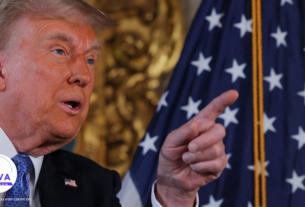Former Prime Minister Sir John Major has delivered an urgent appeal to Prime Minister Keir Starmer: Tackle misconduct in politics now or risk irreparable damage to public trust. Speaking at an event marking the 30th anniversary of the Nolan principles, selflessness, integrity, objectivity, accountability, openness, honesty, and leadership, Major expressed disappointment at how little has changed since he first introduced these ethical standards. He voiced concern that repeated scandals, from misuse of honours and opaque political donations to bullying and the Partygate saga, have eroded faith in government. “No rules can deal with individuals prepared to ignore them,” he warned, arguing that without genuine consequences, conventions are pointless.
Major pressed for concrete measures rather than talk of new watchdogs languishing in limbo. He suggested strengthening existing bodies: giving the House of Lords advisory commission a real role in vetting peerages, empowering the Advisory Committee on Business Appointments to enforce post-office lobbying bans, and restoring full independence to the Electoral Commission. He also backed tighter controls against foreign mega-donations and a faster response from ministers to ethics watchdog findings.
Highlighting the current government’s slow progress on reforms, Major offered what he described as “friendly advice”: don’t reinvent the wheel, just tighten the Nolan framework. He cautioned that Britain’s once-respected reputation for probity is slipping away and urged swift action before “the damage becomes beyond salvage.”
Starmer, whose Labour manifesto included promises to establish an independent ethics and integrity commission, has yet to implement it. That delay has drawn scrutiny from the House of Commons Public Administration Committee. Supporters of stronger accountability say the real test of Starmer’s commitment to cleaning up politics will come only when he enforces standards impartially, even if this means disciplining allies.
Transparency campaigners have welcomed Starmer’s broad ideological commitment to “clean up politics” but stress that the substance, the details of how enforcement will work, remains foggy. Without specific mechanisms, they argue, reforms risk being toothless. International best practice shows that clear sanctions, transparency in donor records, and enforcement powers are necessary to curb cronyism and restore trust.
Sir John’s message is a stark reminder: restoring integrity in public life requires more than speeches. It needs bold, enforceable measures, and the political will to apply them evenly. As Major put it, Britain can’t afford further drift; it needs action, accountability, and a renewed commitment to the principles at the heart of democracy.




